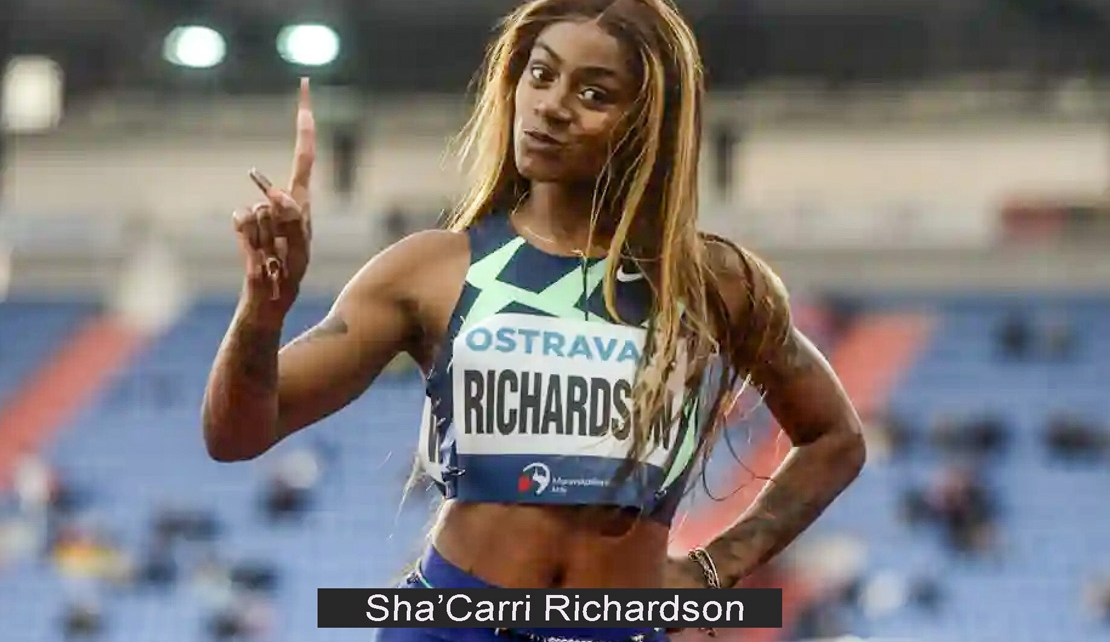Sha'Carri Richardson Asks How Come a Russian Athlete can enter Olympics after failing a Dope Test?

NEW YORK, NY, February 15, 2022 - American sprinter Sha’Carri Richardson is not a happy woman. The decision by the International Olympic Committee on Monday to allow a Russian figure skating athlete to continue competing in Beijing despite a failed doping test did not sit right with her, as she found herself in a similar situation in 2021 before the Tokyo Summer Olympics, but with a completely different outcome.
The 21 year old sprinter had won the Olympic Trials in July 2021. However, Richardson tested positive for cannabis, which led to her being stripped and suspended. She was no longer eligible to compete at the 2020 Summer Games in Tokyo, although she had been favored to win a medal in the women’s 100 meters .

Being tested positive for a banned substance—like cannabis—leads to an immediate suspension. Of course, the athlete is allowed to appeal, but Richardson accepted her fate, revealing she was grieving the death of her mother when she smoked marijuana.
On Monday, the After the International Court of Arbitration for Sport took the extraordinary step of deciding that Valieva was free to compete in the women’s singles event, questions remain about why Richardson’s punishment was so swift and severe, while Valieva is being treated differently.
Richardson commented on the development on Twitter. She asked for a “solid answer” on the difference between Valieva’s case and her own, noting that she too had been expected to win a medal. “The only difference I see is I’m a black young lady,” she wrote.
Can we get a solid answer on the difference of her situation and mine? My mother died and I can’t run and was also favored to place top 3. The only difference I see is I’m a black young lady. https://t.co/JtUfmp3F8L
— Sha’Carri Richardson (@itskerrii) February 14, 2022
An article in the New York Times quoted Adam Rippon, a 2018 Olympic medalist who coaches the American figure skater Mariah Bell, who asked what message it sent to allow a young white athlete to compete after testing positive, but not a young Black athlete.
“I also think that there’s actual accountability in the United States compared to what happens in other countries,” Rippon said Monday. “There’s no doubt about that.”
Richardson questioned why Valieva was allowed to compete despite doubts about her eligibility, when Richardson had been forced by U.S. officials to skip the Olympics altogether.
“In its ruling on Monday, the I.O.C. said that should Valieva win a medal, no ceremony would be held until her case is resolved. The Court of Arbitration for Sport spent a full week trying to decide if Valieva could still compete. Though her test sample was taken on Dec. 25 at the Russian championships, the results were not confirmed until Feb. 7, after she had competed in the team figure skating competition, Russian antidoping officials have said.”
Richardson, in another tweet took note of the time frame, tweeting “Failed in December and the world just now know however my [result] was posted within a week and my name & talent was slaughtered to the people.”
Failed in December and the world just now know however my resulted was posted within a week and my name & talent was slaughtered to the people.
— Sha’Carri Richardson (@itskerrii) February 14, 2022
According to Yahoo Sports, IOC member Denis Oswald said that Valieva’s lawyers told the Court of Arbitration for Sport that it was an accident with her grandfather’s medicine. “Her argument was contamination which happened with a product her grandfather was taking,” Oswald said.
